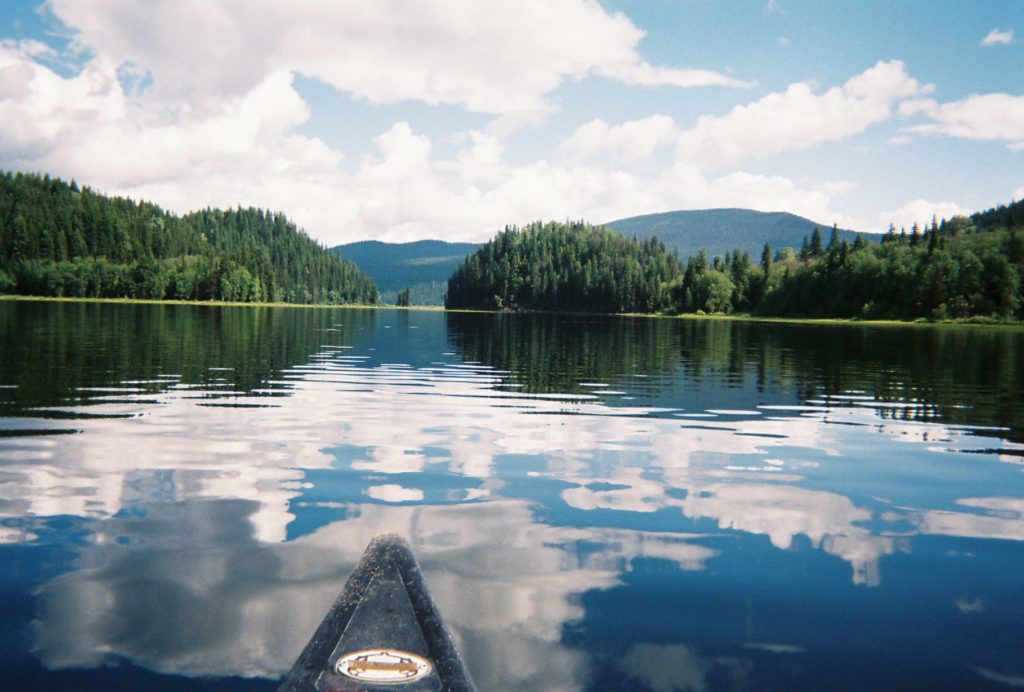Last week we did a fairly strenuous canoe paddle, more than 60km, in a remote northern area of British Columbia. The paddling wasn’t so daunting (3-4 hours per day of solid work), but it was the portages from lake to lake, the lightning storms, and the persistent pelting rain that quickly dampened my sleeping bag and all of my clothing that took their toll.
Now that it’s over, however, so much of that difficulty is forgotten. And instead what remains are the gorgeous images imprinted into my memory and onto the roll of film that we shot as we traveled. Such as this one, taken on the home stretch to Bowron Lake:
 (Note: the horizon is slightly crooked due to the boat leaning a bit to the right side that morning)
(Note: the horizon is slightly crooked due to the boat leaning a bit to the right side that morning)
As I was writing in my journal when the journey was completed, the first thing I put on my list of lessons learned was:
I like to do hard things
And it’s true. The stretch of an ambitious endeavor makes me happy. Doing the mundane, the repetitive, the easily achieved task…boring. I thrive when presented with a challenge, which is why the trip to British Columbia was so much more appealing than a resort stay or some other leisure activity.
While on this trip, these two books, Tracks and Paddling My Own Canoe accompanied me everywhere:
I just finished reading Tracks today, which is a book about a woman who walked across the Australian desert with four camels in the 1970s. At the close of the text, this quotation jumped out at me, as a better expression of my thoughts about hard things, than I expressed myself in my journal (emphasis my own):
As I look back on the trip now, as I try to sort out fact from fiction, try to remember how I felt at that particular time, or during that particular incident, try to relive those memories that have been buried so deep, and distorted so ruthlessly, there is one clear fact that emerges from the quagmire. The trip was easy. It was no more dangerous than crossing the street, or driving to the beach, or eating peanuts. The two important things that I did learn were that you as powerful and as strong as you allow yourself to be, and that the most difficult part of any endeavor is taking the first step, making the first decision.



